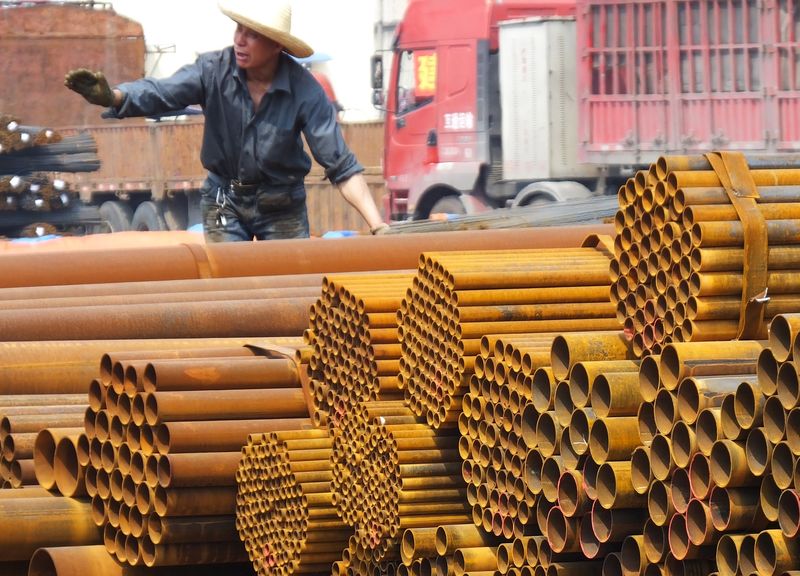BRUSSELS (Reuters) - European steel demand is set to rise in 2018 with continued strength in most steel-using sectors, European steel association Eurofer said on Tuesday, while warning of a threat of rising imports.
Apparent steel consumption, which excludes the impact of inventory changes, is set to rise by 1.9 percent in the 28 countries of the European Union this year, the same rate as in 2017, with solid demand seen from manufacturers and in construction.
Eurofer sees consumption growth dipping to 1.4 percent in 2019.
The group said it saw a risk to exports from the rising euro, but focused more on imports.
Steel imports into the EU dipped by about 1 percent last year because of trade defence measures to counter what the bloc considers to be dumping and unfair subsidies and because Chinese prices picked up, making it less lucrative to export to Europe.
Over the year, Eurofer said, Chinese steel exports to the EU declined by 41 percent, those from Russia by 32 percent and from Ukraine by 31 percent.
However, steel imports from India were up almost 100 percent, from Indonesia more than 100 percent and from Turkey some 64 percent higher last year.
Eurofer said the trade measures left gaps that were rapidly filled by other countries.
"We are an easy target for exporters globally to sell part of production that cannot be sold domestically," Jeroen Vermeij, Eurofer's economics director told a news conference ahead of the release.
Eurofer and its members are nervously awaiting U.S. President Donald Trump's decision on action following a "Section 232" investigation into whether steel imports threaten national security.
Even if measures were principally targeted towards reducing excess production in China, Eurofer said it could still result in more steel exports being re-routed to Europe.
